
Telstra has entered into an agreement to acquire Sydney-headquartered enterprise mobility solutions provider MSC Mobility (MSC), which partnered with Telstra last year to win a large tender for 50,000 MDM-enabled devices for Queensland Health staff.
MSC’s core capability is its enterprise mobility management platform, incorporating mobile device management software such as AirWatch and MobileIron. AirWatch is being used to underpin NSW Health's new Health Mobility Platform, which went live last week.

Waitemata District Health Board (DHB) has begun the roll-out of the Patientrack bedside monitoring technology solution for early identification of deteriorating patients, beginning in a medical ward at Waitakere Hospital before a full roll-out, including at North Shore Hospital, that is due for completion in 2017.
Patientrack, which was first implemented in New Zealand by Canterbury DHB, won the inaugural New Zealand Healthcare Congress Award for its ANZ distributor MKM Health last month, and is widely used by the NHS in the UK.

Queensland Health will accelerate trials of voice-activated duress alarms and body cameras as part of a range of measures to help tackle violence against health workers.
The new suite of measures is in response to a report by a Queensland Health occupational violence taskforce completed in May, which urged that occupational violence needed to be recognised as a clinical issue in the same way as patient care is.
The taskforce also recommended that Queensland Health look at adding details of previous aggressive behaviour and the causes of that behaviour to the integrated electronic medical record (ieMR) that is being rolled out.

Publicly listed Melbourne software firm Global Health and the South Australian Department for Health have been ordered into mediation by the Federal Court next month over their ongoing licence dispute, in advance of a full court hearing set down for December.
Global Health first initiated Federal Court action in June last year after SA Health refused to discontinue using the Chiron patient administration system (PAS), an MS-DOS based system first rolled out by Global Health, then known as Working Systems Software, in 1995.
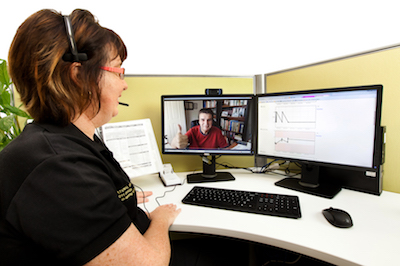
Australian aged and community care provider Feros Care has formed a 50-50 joint venture with New Zealand charitable trust the Selwyn Foundation to offer a new model of technology-enabled community-based care to older people and those living with chronic illnesses to allow them to remain at home for longer.
Called Inviga, the new company was formed following a successful six-month telehealth trial the two organisations ran in 2015, in which 20 clients were set up with Feros Care's My Health Clinic at Home package, which involves a touch-screen computer and diagnosis-specific monitoring equipment.

The South Australian government has set a target of the June quarter next year for the roll-out of the $29.6 million Enterprise Pathology Laboratory Information System (EPLIS) for SA Pathology along with some key solutions at the new Royal Adelaide Hospital site in readiness for its opening.
As part of the state budget released last week, the SA government also plans to align its draft Acute and Aged Care Taskforce model of care framework to inform Transforming Health’s Frailty in Older People model of care, build the capacity of GPs to treat hepatitis C using the newly listed PBS drugs and develop and implement a centralised statewide trauma registry.

NSW Health has bought a statewide licence to use the UpToDate clinical decision support resource from Wolters Kluwer and will integrate it with eHealth NSW’s Clinical Information Access Portal (CIAP) from this month.
UpToDate provides access to medical calculators, drug information and drug interactions, links to full-text medical articles and patient eduction at the point of care. It can also be embedded in electronic medical records such as the Cerner system used in many NSW hospitals.
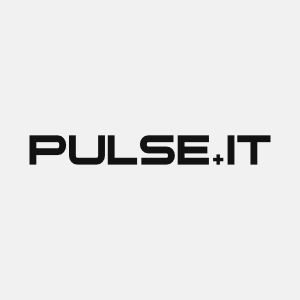
The start of July marked the formal commencement of the Australian Digital Health Agency, with NEHTA's assets transferred to the new entity. While the name has changed as the government rallies behind yet another new term for what essentially amounts to the use of computers in the health sector, the new organisation has much in common with the old.
Pulse+IT readers were asked:
Do you expect the new Australian Digital Health Agency will be better than NEHTA at guiding the eHealth sector?
The results as at COB on Monday, July 11 were as follows:

Melbourne-headquartered software firm Mediclinic has joined the emerging market in cloud-based clinical software targeting GPs and medical specialists, building on its existing niche in allied health and aged care to offer what it says is an easy-to-use product for busy doctors that has the most stringent security available.
Mediclinic has been around for a number of years in various guises but has been under new ownership for the last few years. The company has offices in Thailand and the Philippines and is best known for the software it has built for allied health providers and for the aged care sector.
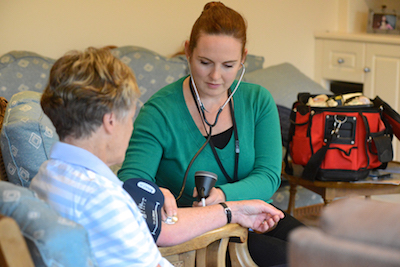
Technology provider Tunstall Healthcare has renewed its contract with Queensland-based aged and community care provider Ozcare for the provision of its emergency medical alarm service.
As part of its assistive technology product range, Tunstall supplies home medical alarms and operates a 24-hour monitoring centre for clients such as Ozcare, which in addition to home nursing, allied health and dementia support services also runs some residential aged care facilities in Queensland.

Auckland-headquartered medical centre operator Green Cross Health will roll out Medtech Global's Evolution practice management system in all of its 47 practices in New Zealand, which represents over 1000 users.
Evolution was launched in 2014 and is Medtech's long-term replacement for Medtech32, which is by far the market leader in GP clinical and practice management software with an estimated 80 per cent share.

Former Mater Health Services CIO Mal Thatcher has temporarily stepped into the position vacated by Colin McCririck as CIO/CEO of eHealth Queensland.
Dr Thatcher recently completed his PhD, awarded by the Queensland University of Technology for developing a governance framework for the adoption of IT in acute healthcare.

Pulse+IT's weekly round-up of international health IT and eHealth news for the week ending July 10:
care.data dumped after Caldicott review
Digital Health News ~ Ben Heather ~ 06/07/2016
The controversial care.data programme has been killed off following the release of Dame Fiona Caldicott's latest report on security and information governance in the NHS, which recommends sweeping changes to NHS data protection.
11 million patient record breaches make June worst month for information security in 2016
Healthcare IT News ~ Jack McCarthy ~ 07/07/2016
The number of healthcare security attacks continues to grow with breaches of over 11 million patient records in June, more than any other month this year, according to a report from security firm Protenus and DataBreaches.net

Pulse+IT's weekly round-up of Australian and New Zealand health IT and eHealth news for the week ending July 9:
Three reasons why we should have seen Labor’s ‘Medicare SMS’ coming
The Conversation ~ Stephen Mills ~ 08/07/2016
Labor’s Medicare SMS, texted to voters in the dying hours of the election campaign, has become famous for all the wrong reasons.
Green Cross Health evolves with Medtech
NZDoctor ~ Bruce Lee ~ 08/07/2016
Green Cross Health is rolling out the Medtech Evolution practice management system across its 47 practices.

An assessment of the roll-out of the Enterprise Patient Administration System (EPAS) at Adelaide's The Queen Elizabeth Hospital (TQEH) in the coming months will provide guidance on whether the patient administration element of EPAS is ready to be installed at the new Royal Adelaide Hospital in November, or whether a contingency plan will be required using the existing system, the SA Auditor-General has reported.
South Australia's Auditor-General Andrew Richardson this week tabled a supplementary report on the EPAS system, which went live at TQEH last Wednesday. The roll-out of the system has been followed closely by the Auditor-General's department, with a similar report tabled at this time last year.

The Victorian Department of Health and Human Services (DHHS) will review arrangements for the transfer of care of acute inpatients and release a plan to inform the future directions for telehealth as part of new initiatives detailed in its policy and funding guidelines for the coming year.
Under the transfer of care review, eight Victorian health services will trial the use of technology to share patient records with GPs after a hospital stay, and DHHS also plans to begin a trial of a new funding model for integrated care called HealthLinks: Chronic Care (HLCC).

Well-known eHealth researcher and security expert Trish Williams has started work as co-director of the new Flinders Digital Health Research Centre, located at Flinders campus at the Tonsley innovation district in Adelaide.
Professor Williams joins former Western Sydney University professor of health informatics Anthony Maeder as co-director of the new centre, which is supported by funding from the South Australian government and Cisco Systems.
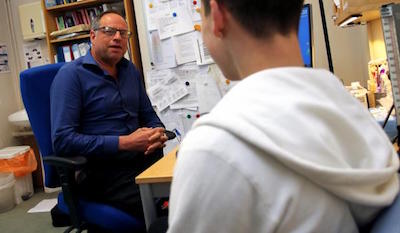
A brand new reporting module and improvements in the national My Health Record (MyHR) functionality are two highlights of the forthcoming Lava edition of Best Practice's Premier clinical and practice management software system.
The new edition has also been redesigned to allow multi-location practices to better deploy the software, including the ability to assign one doctor with multiple provider numbers to different locations and have this reflected throughout the appointment book.

CSC is set to launch the Lorenzo electronic medical record (EMR) system on the Australian and New Zealand markets at the Health Informatics Conference (HIC) in Melbourne at the end of the month, promising to demonstrate its ability to integrate with other clinical information systems and medical devices as well as a new suite of APIs.
Lorenzo is used by 18 National Health Service (NHS) trusts in the UK including the George Eliot Hospital NHS Trust in Nuneaton, Warwickshire, where it has been rolled out to the hospital's diabetes care service to improve data capture and provide a care management solution that closely follows the clinical pathway for diabetes care developed by the trust's honorary consultant physician in endocrinology and diabetes, Vinod Patel.

The Victorian government has opened the $200 million Regional Health Infrastructure Fund for applications, urging health services across rural Victoria to apply for a share of $50m from the first round.
The fund is aimed at upgrading rural and regional hospitals to ensure Victorians can access high quality care and facilities no matter where they live.

Clinical and practice management software vendor Genie Solutions has fully integrated its new Gentu software as a service (SaaS) product with Eclipse, allowing users to transmit claims to Medicare and health funds through Gentu’s interface in their web browser.
Genie Solutions launched Gentu in April as a standalone product alongside its existing Genie product, which serves about 50 per cent of the medical specialist market.

With NSW having already surrended its rugby league credibility to Queensland with one game to play, and Australia's Sydney-based prime minister looking worse for wear, this week's Pulse+IT poll offered the publication's home state of NSW the chance of redemption.
Pulse+IT readers were asked:
Which jurisdiction do you see as the most competent in delivering IT projects in healthcare?
The results as at COB on Monday, July 4 were as follows:

The Murdoch Children's Research Institute (MCRI) and innovation company Curve Tomorrow have announced the top 10 finalists for their Bytes4health program, which is offering $25,000 towards the development of new digital health and medical technologies.
The initiative was launched in April and is open to start-ups that are developing a product or are extending technology into healthcare. In addition to funding, successful developers will get the opportunity to work at MCRI.

The big two of Fisher and Paykel Healthcare and Orion Health dominate the NZ health technology industry with the industry turning over $1.3 billion in 2015, according to the New Zealand Health Technology Review.
The report, released during the sixth NZ Healthcare Congress in Auckland recently, assesses the economic and research and development (R&D) activity of the local health technology industry, which is defined as companies that produce and sell a medical device or a health IT product locally or internationally from New Zealand.
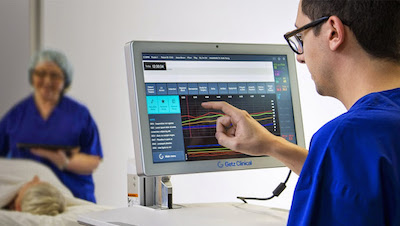
Adelaide-based clinical software company Getz Clinical has added two new anaesthesia modules to its Getz Clinical Cloud perioperative information management system along with enhancements to existing modules in its new release, version 2016.2.
Getz Clinical, which counts SA Health, Queensland Health, Singapore Health, the massive Chris Hani Baragwanath Hospital in Johannesburg and the private Forte Hospital in Christchurch among its customers, deployed the update to subscribing hospitals on June 30.

Pulse+IT's weekly round-up of international health IT and eHealth news for the week ending July 3:
Clinical informaticist shares why FHIR won’t extinguish HL7
Healthcare Informatics ~ Heather Landl ~ 30/06/2016
Russell Leftwich, M.D., a clinical informaticist and an HL7 International board member, discusses the promise of FHIR in healthcare and the near-term “hybrid" world that healthcare organizations will be operating in.
4,300 records breached at Massachusetts General Hospital
Healthcare IT News ~ Bernie Monegain ~ 30/06/2016
A third-party vendor is responsible for the security breach of the protected health information of 4,300 patients at Massachusetts General Hospital.

Pulse+IT's weekly round-up of Australian and New Zealand health IT and eHealth news for the week ending July 2:
Malcolm Turnbull promises nobody will pay more to see the doctor despite rebate freeze
Sydney Morning Herald ~ Michael Koziol, Jane Lee ~ 01/07/2016
Prime Minister Malcolm Turnbull has promised nobody will pay more to see the doctor as a result of the Coalition's extended freeze on Medicare rebates, even as GPs prepare to charge patients co-payments for the first time.
Labor looking ahead on NBN while Coalition stuck at 25Mbps
ZDNet ~ Chris Duckett ~ 01/07/2016
As Australia limps to the finish line of its eight-week election campaign, voters will once again receive the NBN they voted for.

Queensland Health will release an invitation to offer (ITO) for a new picture archiving and communication system (PACS) solution for the Royal Brisbane and Women's Hospital (RBWH) later this month.
There is also the possibility for a roll-out at other sites in the Metro North Hospital and Health Service, which besides the 929-bed RBWH includes the 630-bed Prince Charles and three smaller hospitals at Kilcoy, Caboolture and Redcliffe.

Orion Health will roll out its Enterprise, Consult and Rhapsody solutions at the Oasis maternity hospital in Abu Dhabi, the first deployment of Orion's acute care suite in the United Arab Emirates.
Orion Health's senior vice president for Enterprise, David Leach, said Oasis Hospital is a progressive healthcare provider that has been looking after women, children and families in the eastern region of Abu Dhabi for over 50 years.

SA Health went live with its Enterprise Patient Administration System (EPAS) at the 311-bed Queen Elizabeth Hospital (TQEH) in Adelaide this week, part of a wider roll out of the Allscripts-built system that has received an extraordinary amount of scrutiny and criticism since its first implementation three years ago.
With an IT system that has been the subject of such intense interest some might have taken incremental approach, but the full functionality of EPAS – which is both a patient administration system and an electronic medical record – was rolled out at TQEH on Wednesday.
SA Health executive director and CIO Bill Le Blanc (pictured left, with Allscripts Australia MD David Chambers) told Pulse+IT that a much more cautious approach will be taken at the new Royal Adelaide Hospital (new RAH) when it opens in late November so staff are not overwhelmed by both a brand new hospital and a brand new IT system, but TQEH has gone all out.

Labor and the Greens have laid out their respective positions on digital health for tomorrow's election, with both showing support for new models of primary care such as health care homes and investigating the potential of technologies such as that used in the CSIRO's home monitoring trial.
Labor has also promised to continue the development, uptake and use of eHealth records, and to pursue a new national information policy through a cross-sector Independent Data Council modelled on the New Zealand and UK experience.

From July 1, the Health Information Management Association of Australia (HIMAA) will be offering a full AQF qualification in clinical coding – the 22274VIC Certificate IV in Clinical Classification.
HIMAA hopes that the new qualification will encourage employers to engage with the registered training organisation (RTO) to ensure work-readiness for graduates.
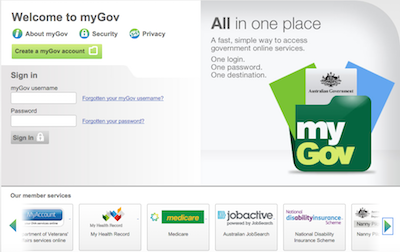
The Department of Human Services will no longer issue Medicare and PBS rebates to patients as cheques from tomorrow, with the rebate now paid directly into the patient's bank account.
Patients must register their bank account details with Medicare to receive their payment, which they can do online at myGov. myGov has recently been made easier to use with the option of logging in with an existing email address rather than the randomly generated log-in previously issued.
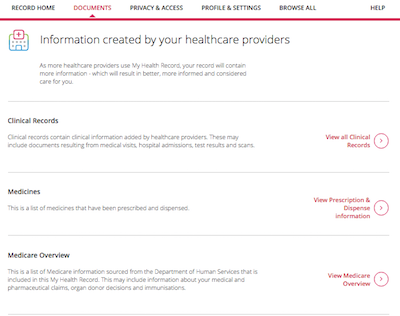
Over 3.8 million people are now registered for the My Health Record system following the addition of almost a million new records in the two opt-out trial regions earlier this month.
The consumer view of the system has also undergone a complete revamp both in terms of the user interface and ease of use. The record home view now lists the person's shared health summary, personally entered notes and advance care information, with clinical documents accessible through drop-down menus.

Tasmania's Northern Integrated Care Service (NICS) has gone live with a new outpatients electronic medical record using the Miya Clinic system from publicly listed Adelaide company Alcidion.
Miya Clinic is being interfaced with the hospital's iPM patient administration and other information systems, with plans to integrate it later in the year with the new TrakCare emergency department module from InterSystems that is being deployed at all four Tasmanian hospitals.

Publicly listed online appointments booking service 1stAvailable has terminated a marketing agreement it had with health fund NIB involving its Whitecoat allied health practice rating service but has also raised an extra $6.3 million in capital to fund new product launches, including a telehealth service to be launched next month.
1stAvailable signed a marketing agreement in July last year with Digital Health Ventures (DHV), a specialist digital company half-owned by NIB, to build and develop Whitecoat, which NIB CEO Mark Fitzgibbon described as the company's “Wikipedia, Amazon and TripAdvisor-style solution” for the healthcare market.

With the protracted election campaign drawing to a close and eHealth related policy announcements missing in action, this week Pulse+IT took a wider view of the sector and asked readers the following question:
Which political party has the best health policy?
The results as at COB on Monday, June 27 were as follows:

IBM Research is planning a new project in association with the Melanoma Institute Australia to use its 'cognitive' or self-learning computing technology to analyse dermatological images of skin lesions to help identify specific clinical patterns in the early stages of melanoma.
The new research builds on an existing agreement IBM has with skin cancer clinic operator MoleMap that uses advanced visual analytics to analyse data sets such as images and text.
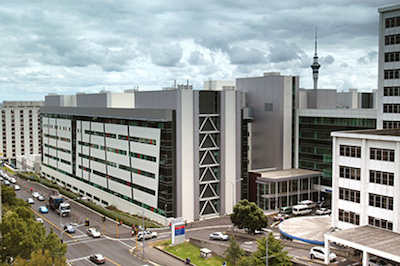
The New Zealand Ministry of Health has completed a nationwide survey of acute hospitals and their rankings according to the HIMSS electronic medical record adoption model (EMRAM) scale, which will now be used to develop a plan to help district health boards reach the highest score of level 7.
First announced by Health Minister Jonathan Coleman at the HINZ conference in Christchurch last year as one of four new initiatives of what is now being called Digital Health Work Program 2020, the project will eventually develop a “blueprint” for digital hospitals to guide investment decisions and to benchmark hospitals against others in New Zealand and around the world.

The deadline for submission of abstracts for the 2016 International Conference on Successes and Failures in Telehealth (SFT-16) has been extended until next Monday, July 4.
The organisers are looking for abstracts for a scientific paper, or a clinical case study or report, with a selection of abstracts potentially eligible for publication as short papers in the Journal of Telemedicine and Telecare.

Pulse+IT's weekly round-up of international health IT and eHealth news for the week ending June 26:
VA misappropriated funds to upgrade VistA EHR, build mHealth apps
Healthcare IT News ~ Jonah Comstock ~ 23/06/2016
The US Inspector General accused the Department of Veterans Affairs of misusing $51.9 million in government appropriations to enhance its proprietary VistA electronic health record and a suite of mobile health apps.
NHSMail 2 rolled out to 200,000 NHS staff
Digital Health News ~ Ben Heather ~ 23/06/2016
More than 200,000 people have already been switched to NHSmail 2 and most will have barely noticed, the HSCIC says.
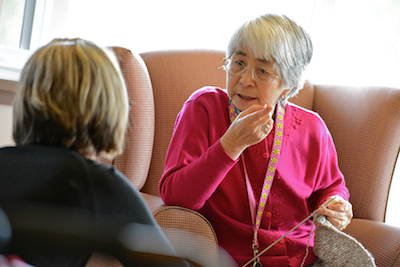
Pulse+IT's weekly round-up of Australian and New Zealand health IT and eHealth news for the week ending June 25:
Aged care funding cuts will push burden onto ‘overstretched hospital system’
Australian Ageing Agenda ~ Darragh O'Keefe ~ 24/06/2016
Older people who are cash-strapped and have complex healthcare needs will end up in the hospital system as the government’s recent funding cuts limit the ability of aged care operators to accommodate these seniors in residential care.
Queensland Health CIO quits
Computerworld ~ Rohan Pearce ~ 24/06/2016
The Queensland Health chief information officer and CEO of eHealth Queensland, Colin McCririck, has resigned.

Pulse+IT has asked the four candidates vying to become the next president of the RACGP their thoughts on eHealth and health IT. Next up, Sydney GP, GP Synergy chair and cloud-based medical record advocate Harry Nespolon.
As president, will eHealth policy be a priority for you or are topics such as the Medicare rebate freeze, healthcare funding or workforce training more important?

eHealth Queensland chief executive officer Colin McCririck will leave the agency in two weeks having accepted a job in the private sector overseas.
Mr McCririck, who is also Queensland Health CIO, had a short tenure in the role, having been appointed in December last year then been embroiled in a nepotism scandal that saw him stood aside for four months as the state's Crime and Corruption Commission (CCC) investigated.
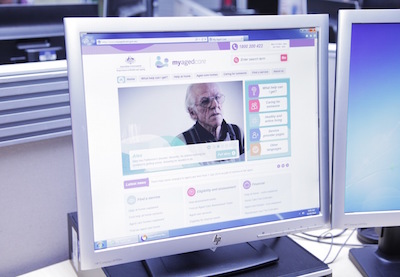
A new webform that will assist healthcare professionals to refer patients to the My Aged Care system will be available for use from next week, part of release five of the online assessment and referral system for Commonwealth-funded aged care services.
GPs in particular have been critical of what they call the inefficient nature of the new system, which requires them to use an electronic referral on the My Aged Care website or to fax or phone in a referral to the My Aged Care contact centre.


UPDATE: RACGP members have elected clinical professor, telehealth expert and keen Twitterer Bastian Seidel as the college's next president. He'll take up the two-year role in September from Frank Jones. Here are his thoughts on eHealth, the My Health Record and communication between hospitals and general practice.
As president, will eHealth policy be a priority for you or are topics such as the Medicare rebate freeze, healthcare funding or workforce training more important?
I have a personal interest in eHealth and I’m one of the foundation members of the RACGP eHealth network. I obtained membership of the Australian College of Health Informatics and have been a member of the Health Informatics Society of Australia for many years. My focus has been on usability of telehealth consultations and I was one of the first GPs who used telehealth consultations when MBS item numbers were introduced in 2011. I’ve been a regular presenter at the annual Australian Telehealth conference and recently gave a workshop on telehealth at the Digital Health Show in Sydney.

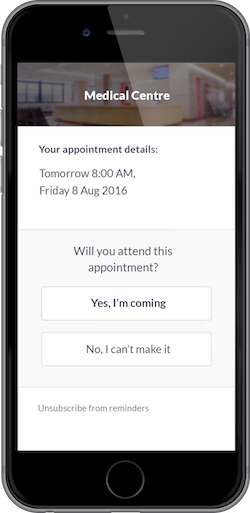
Melbourne-based medical technology company HotDoc has launched an SMS-based reminder solution called SMART Reminders to help general practices reduce no-shows and late cancellations.
Like the SMART Recalls service it launched last year, SMART Reminders is fully automated, so rather than practices having to set every reminder individually or remember to send them at an appropriate time each day, repetitive tasks are taken care of by a customisable reminders engine.

The NSW government allocated an extra $20 million to new integrated care initiatives, including the development of the Health Care Homes model in partnership with the federally funded Primary Health Networks (PHNs), in yesterday's state budget.
The state will also spend $126 million on health ICT and digital enhancements this year, some of which is part of the $400 million for eHealth initiatives announced in the 2011-12 budget but $42.4 million of which is new money.

Researchers from the University of Queensland's Institute for Molecular Bioscience (IMB) are asking people living with chronic pain to help them develop a mobile app that can track their symptoms and medications.
The IMB team is developing a new app called PainPal that is not only aimed at helping patients to track their pain and to provide information and support, but also to help healthcare providers manage and treat pain.

Medicines information publisher MIMS Australia will begin including international non-proprietary names (INNs) in addition to Australian approved names (AANs) in its drug reference systems from its data release next month.
The move is part of a four-year project led by the Therapeutic Goods Administration (TGA) under its International Harmonisation of Ingredient Names (IHIN) initiative, which will see terms like amoxycillin change over time to the standard international spelling amoxicillin.
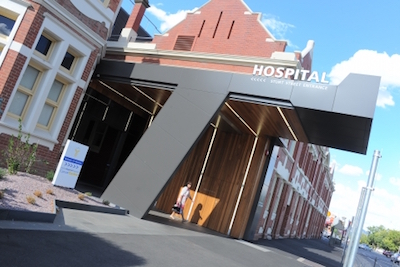
Ballarat Health Services (BHS) is set to begin uploading discharge summaries to the My Health Record (MyHR) through Core Medical Solutions’ (CMS) BOSSnet electronic medical record as part of two federally funded 'opt-in' trials of the MyHR.
One trial is being run by Western Victoria Primary Health Network (PHN) with another taking place in Western Australia. There are also two trials of an opt-out model currently underway in northern Queensland and western Sydney.

Adelaide-based clinical software firm Getz Clinical has released a new version of its Analytics cloud-based module for use by hospitals in managing the performance of perioperative departments and to aid clinical research.
Analytics is a module in the Getz Clinical Cloud software suite, which Getz says is the world's first cloud solution for perioperative information management systems. It is used in hospitals across Australia and globally as a replacement for paper-based patient record keeping processes.

Wireless communications vendor Ascom Integrated Wireless has signed an agreement with Cardioscan subsidiary Life Monitor to combine Ascom's Myco smartphone with the AirStrip One mobile interoperability platform that Life Monitor distributes in Australia and New Zealand.
Ascom Myco is a smartphone device specifically designed to improve nurse workflow and reduce alarm fatigue that can be integrated with communications technologies such as nurse call systems and patient monitors to receive alerts and alarms.

The election spotlight was firmly on health this week, with Labor sharpening its Medicare campaigning and the Coalition seeking to nullify its opponent's strategy by backing away from plans to outsource the handling of claims to someone other than Department of Human Services (DHS).
Before these political machinations started to play out, and with more of an interest in our readers' views on the way government affects the delivery of clinically related IT projects, Pulse+IT asked readers the following question:
Which government organisation do you see as the most competent at delivering IT projects in healthcare?
The results as at COB on Monday, June 20 were as follows:

Almost a million people living in two trial sites of the opt-out model for the My Health Record are now able to access their newly created records, as the trial moves into its next stage.
Just over 971,000 My Health Records have been created across the two sites, with an opt-out rate of 1.9 per cent. This is consistent with international experience with opt-out systems for electronic health records, a spokeswoman for the Department of Health said.

The federal government appears to have backed away from plans to outsource the building of a new IT system and the associated processing of claims for Medicare payments, with Prime Minister Malcolm Turnbull yesterday proclaiming that “every element” of Medicare that is currently in government hands will remain so.
The government first announced it was investigating the outsourcing of Medicare payments in the 2014-15 budget, allocating half a million dollars to investigating a commercially integrated health payment system and in August that year calling for expressions of interest to identify “potential alternative approaches to the delivery of health payments”.

Wearables, implantables, robotics and diagnostics will be on show this week at the sixth NZ Healthcare Congress, being held in Auckland on June 21 and 22.
Hosted by the Medical Technology Association of New Zealand and NZ Health IT, the congress is part of HealthTech Week, which is run in collaboration with the Consortium for Medical Device Technologies (CMDT).

Either people don't care about who takes up the new role of chief technology and digital officer or people don't care about Pulse+IT's polls, but our question from last fortnight got a 50-50 result that tells us little about what the health IT industry thinks about its national leadership.
We here at Pulse+IT are comforting ourselves with the thought that the poor response to the poll – only 26 people were interested – was due more to the Queen's birthday holiday than our boring question.
Either that, or people just don't really care who takes up the MoH job, which in effect replaces that of the role of director of the National Health IT Board. While the other roles in Chai Chuah's revamp of the senior bureaucracy have been filled, the person taking up the CTO job is not likely to be be named until mid-July.
In our last issue of Pulse+IT NZ, we asked:
Are you concerned that the MoH has still not appointed a new chief technology and digital officer?

Auckland-based telehealth provider Doctor2Go has signed up New Zealand's second-largest health insurer to offer its WebRTC-based service as part of NIB's workplace wellness program.
Doctor2Go was launched in February last year as a consumer offering from Third Age Health, which provides medical and nurse practitioner services, including 24/7 on-call GP support, to residential aged care facilities.

Pulse+IT's weekly round-up of international health IT and eHealth news for the week ending June 19:
Cerner retains largest market share in EMR industry
Healthcare Informatics ~ Heather Landl ~ 16/06/2016
Cerner continues to hold the largest market share of the $27 billion electronic medical records (EMR) market, thanks to its acquisition of Siemens Healthcare’s EMR business last year, according to a new report from Kalorama Information.
Hunt "relentless" on delivering paperless NHS
Digital Health News ~ Lyn Whitfield ~ 16/06/2016
Health secretary Jeremy Hunt has said he will be “relentless’ in seeing through his commitment to a ‘paperless’ NHS by 2020, because technology underpins his ambitions for the NHS.

Pulse+IT's weekly round-up of Australian and New Zealand health IT and eHealth news for the week ending June 18:
Pegasus and ProCare give green light to National Enrolment Service
NZ Doctor ~ Bruce Lee ~ 17/06/2016
Two of the country’s largest PHOs plan to roll out the National Enrolment Service to their practices after initially withholding activation.
Australian pilot of telemonitoring for chronic disease a success
Australian Doctor ~ Carmel Spark ~ 17/06/2016
The day when chronically ill patients hook themselves up to a home device to measure their ECG, blood pressure, pulse oximetry, lung function and blood sugars, and then upload the results to a website may be closer than you think.

ACT Health has issued a request for expressions of interest in providing an integrated radiology information/picture archiving and communication system (RIS/PACS) for the Canberra Hospital's medical imaging department.
And Latrobe Regional Hospital has issued an EOI on behalf of the Gippsland Health Alliance (GHA) for an electronic medical record or a community health system for its members.

Brisbane's Princess Alexandra Hospital (PAH) has begun work on the next stage of its massive digital hospital roll-out, with planning under way for the implementation of electronic medications management and the replacement of its anaesthesia system early next year along with an intention to apply for HIMSS level 6 certification.
Nicknamed MARS – for Medications Management, Anaesthetics & Research Support – the roll-out is planned to go live next January, marking a crucial stage in the hospital's move from predominantly paper to fully digital in just a few years.
Last November, the PAH became the first large-scale hospital in Australia to go digital, implementing what is known in Queensland as the “digital stack”, a set of components that includes an upgrade to the Cerner-based integrated electronic medical record (ieMR) and full integration of medical devices, with MARS to come next and in the future the implementation of Cerner's mobility suite.

The Canterbury District Health Board began moving patients into the redeveloped Burwood Hospital this week, with defence force personnel on hand to help shift frail, elderly patients across town from the Princess Margaret Hospital.
The $215 million redevelopment of sub-acute services at Burwood Hospital is part of the almost $1 billion worth of new hospital facilities being built in Canterbury. Construction of a $300m acute services building for Christchurch Hospital will begin this year for an expected opening date in 2018.

The latest release of MedicalDirector's AusDI medicines information database has been aligned with the recently update ingredient names introduced by the Therapeutic Goods Administration (TGA) as part of the International Harmonisation of Ingredient Names (IHIN) initiative.
The TGA, which maintains terminology for ingredients used in medicines in Australia, began a four-year transition to the standardised names in April to align them with names used internationally. New Zealand underwent the process in 2008 and the UK in 2003.

Publicly listed health informatics firm Alcidion Group is behind the development of new data acquisition technology that is being used to extract data from echocardiogram studies and amalgamate it into a centralised, cloud-hosted database server for echocardiography research.
The National Echocardiography Database of Australia (NEDA) study is being led by David Playford, professor of cardiology at Perth's Mount Hospital and the University of Notre Dame, and Geoff Strange, an associate professor at Notre Dame and CEO of the Pulmonary Hypertension Society Australia and New Zealand.

University of Auckland researchers will use a $5 million grant from the Health Research Council of New Zealand (HRC) to build a multi-algorithm risk prediction engine and health information platform for vascular disease.
Part of a record $60m in funding for 52 projects announced by the HRC this week, the Vascular risk Informatics using Epidemiology & the Web (VIEW) project is led by epidemiologist Rod Jackson from the university's School of Population Health.

Long-standing SA Health CEO David Swan is leaving the department to head up the private hospital arm of St Vincent’s Health as the state's ninth facility gears up to go live with the troublesome Electronic Patient Administration System (EPAS).
Mr Swan, who was appointed CEO in 2010 and also chaired the Health Ministers’ Advisory Council, has been an integral part of the EPAS roll-out, which has hit a number of hurdles over the last few years including much resistance from clinicians.

The Queensland government will invest $119.9 million in the continued statewide roll-out of clinical and administrative support systems and technology equipment replacement in the 2016-17 financial year.
While there were few specifics in this year's budget papers, the government says these systems will ensure the right information and technology is available in line with emerging technologies and will ensure the sustainability of eHealth service delivery.

Almost 40 per cent of Australian general practices will be unable to comply with the new digital health practice incentive payment (ePIP) requirements, an AMA survey shows.
A further 36 per cent were unsure if they will comply and just 24 per cent considered themselves able, the survey of 658 practices found.
The new ePIP requires practices to upload a shared health summary to the My Health Record (MyHR) system for 0.5 per cent of their standardised whole patient equivalent each quarter and has been the subject of much disquiet from both the AMA and the RACGP.
However, Health Minister Sussan Ley said the current amount of shared health summaries being uploaded is about 6000 per week, which she said indicated that plenty of GPs were now participating in the system.

Two former MedicalDirector staffers have joined forces to build a new cloud-based clinical and practice management system called MediRecords with the intention of taking on the incumbents in a market that is quickly opening up to the cloud.
Headed by Jon Marshall and business partner Matthew Galetto, MediRecords has been in development for the last three years and publicly launched at the General Practice Conference and Exhibition in Sydney last month.

Wellington PHO Compass Health has gone live with a new provider portal for its 59 practices, based around a dashboard view of performance measures.
Users can log in directly from Medtech 32 so no username or password is needed, and it also provides real-time news updates rather than having to rely on weekly emails.

While the protracted federal election campaign continues to consume the nation’s attention, the start of July is also an important period for eHealth in Australia with the shuttering of the National eHealth Transition Authority (NEHTA) and the opening of the Australian Digital Health Agency (ADHA) to take place on July 1.
With only a few weeks before this transition takes place, Pulse+IT asked readers the following question:
Are you concerned that the ADHA has still not appointed a permanent CEO?
The results as at COB on Monday, June 13 were as follows:

Integrating the Healthcare Enterprise (IHE) is holding a half-day workshop and interoperability showcase prior to the Health Informatics Conference (HIC) in Melbourne in July exploring the integration of medical, home care and monitoring devices with electronic medical records (EMRs).
Featuring the co-founder of IHE's patient care devices domain Todd Cooper, the workshop will cover device integration in both the hospital and home care setting, exploring common device-EMR integration scenarios.
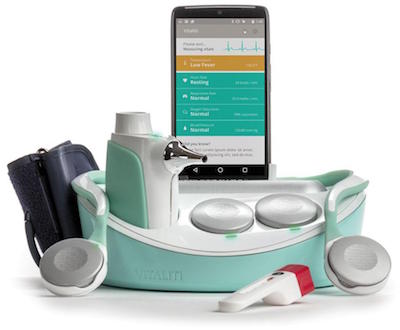
The Tricorder X-Prize is an international innovation challenge promising $US10 million to a team that can crack the elegantly elusive problem of the 'tricorder', the legendary handheld health analyser originally featured in Star Trek that has the 'tri-functionality' of sensing, computing and recording health.
A little black box with a screen and detachable probe, the tricorder could sense vital signs, analyse blood work and diagnose a range of medical conditions. Although it was able to send distress signals, the tricorder could not deliver treatment; it was a portable, easy-to-use diagnostic toolkit.


Pulse+IT's weekly round-up of Australian and New Zealand health IT and eHealth news for the week ending June 11:
GP software blamed for gaping holes in vaccination records
Medical Observer ~ Rada Rouse ~ 10/06/2016
GPs are struggling to keep kids' vaccination records up-to-date, with practice software failures leading to dramatic holes in the data kept by the Australian Childhood Immunisation Register (ACIR).
Antibiotics being incorrectly prescribed in Australian nursing homes, prompting superbug fears
ABC News ~ Meredith Griffiths and Sophie Scott ~ 10/06/2016
There are fears Australian nursing homes are contributing to the creation of superbugs, with antibiotics being inappropriately prescribed in up to 20 per cent of cases.

A new version of the national digital health strategy is not likely to be released until later this year as the newly appointed board governing the agency replacing the National E-Health Transition Authority (NEHTA) gets to work on aligning the strategy with the technical and organisational changes that are sweeping through the local eHealth sector.
Interviews for the new CEO of the Australian Digital Health Agency are also continuing and an appointment will not be announced until after the federal election, with acting CEO Richard Royle committing to staying in the role until a permanent appointment can be made.

Canberra-based Citadel Health, which markets the Auslab laboratory information system used by several state-based public pathology services, has signed an agreement with radio frequency identification company HealthRFID to build a bi-directional interface between Auslab and HealthRFID's solution for blood tracking.
Called ControlPoint, the blood product tracking and transfusion solution ensures that blood products are properly tracked and recorded at every step of the process, from donation of the blood product from the Australian Red Cross Blood Service (ARCBS) to the transfusion of the products to a patient.

The Western Australian government has committed to a staged commissioning of what it is calling the 'high-tech' Perth Children's Hospital (PCH), with construction finished in August and the first patients being seen in late October.
WA Premier Colin Barnett said the final patients would be moved from Princess Margaret Hospital for Children (PMH) to the new $1.2 billion, 300-bed PCH in November.

Prescription exchange service MediSecure has merged with pharmacy software vendor Simple Retail to form a new company that has set its sights on increasing the prominence of electronic transfer of prescriptions (ETP) technology in the eHealth sector, in particular through initiatives such as real-time prescription monitoring (RTPM) and the My Health Record system.
Long considered rightly or wrongly as the general practice side of ETP as opposed to competitor eRx Script Exchange, which dominates the pharmacy end but is also integrated into most general practice software packages, MediSecure also has a new CEO in Jan Wolffram, who took over in November last year following the retirement of the company's founding CEO Phil Shepherd.

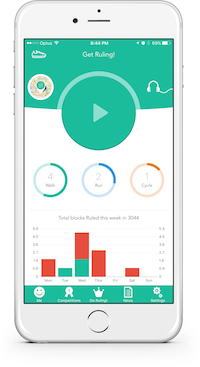
Two young entrepreneurs are about to launch a fitness app that uses gamification and people's innate competitive instinct to help make exercising fun and set the app apart from the heavily saturated fitness tracking market.
Called Run & Rule, the new app has a desktop dashboard component that allows users to track their progress, both in terms of fitness and what territory they have claimed for themselves as part of the game.

The air bulb-operated nurse call pendant developed by South Australian industrial designers in association with Hills Health Solutions has picked up a national Good Design Award and global Red Dot Design Award in the medicine and life science category.
The pendant was developed at Hills' Innovation Centre in Adelaide in association with University of South Australia's Robert White, Daniel Weiss, Peter Schumacher and Flinders University's Sandy Walker.

Queensland Health has issued a request for offer for the deployment and support of a new laboratory information system (LIS), a contract expected to be worth between $50 and $100 million.
Pathology Queensland has used the Auslab system from PJA Solutions, now part of Citadel Health, throughout its public hospital pathology services for the last 20 years, but the Queensland government signalled it wanted to replace the system in the $1.26 billion, 20-year health ICT strategy released last year.

Developers looking to get a better understanding of the use of the Fast Healthcare Interoperability Resources (FHIR) standard in mobile app development and those wanting to hear from the FHIR starter himself are being invited to a three-day HL7 Australia working group meeting in Sydney next month.
The working group meeting is aimed at clinicians, software vendors, medical organisations and government decision makers and will feature a 1.5 day introduction to FHIR connectathon, and will be preceded by a National Clinical Terminology Service (NCTS) connectathon, organised by HL7, NEHTA and the CSIRO.

Queensland's Sunshine Coast University Hospital will open next year with the intelligent Cardiovascular Information System (iCVIS) developed by Adelaide firm Alcidion for Fujifilm Medical Systems live in its cardiology department.
iCVIS was first built for Melbourne's Western Health in 2014 based on Alcidion's Miya health informatics platform. The concept came from Fujifilm, which then looked around for a partner to help build a bespoke system.

Clinical and practice management software vendor MedicalDirector has taken a novel approach to the user interface for its new web-based product Helix, producing a clean and uncluttered look that mirrors the workflow of the user and introduces a three-panel view for GPs that shows the patient's history, their health summary and their future follow-up needs.
MedicalDirector announced last month that it would launch a completely redesigned system for new and existing customers looking to move to the cloud, although the company emphasises that its existing on-site product MedicalDirector 3 will continue to be supported and improved.

With Telstra Health recently being awarded a contract to build a national cancer screening register, in this week's poll, Pulse+IT asked readers the following question:
Are you happy that Telstra Health has been awarded the contract for the National Cancer Screening Register?
The results as at COB on Monday, June 6 were as follows:

Taranaki District Health Board will begin a pilot this month of a tablet-based system of electronic templates and forms to better enable data capture for its public health nurses.
Taranaki DHB is using the AMS mobile solution developed by NZ firm the Kinross Group and hosted in a Spark data centre to replace the heavy and burdensome paper files that public health nurses often have to lug around to schools.

Pulse+IT's weekly round-up of international health IT and eHealth news for the week ending June 5:
Release of patients' electronic data should be a top priority, says OCR
Healthcare IT News ~ Jessica Davis ~ 02/06/2016
At ONC’s annual meeting, Deven McGraw, deputy director of health information privacy in HHS' Office for Civil Rights, said the culture change surrounding data sharing will happen because patients demand it.
PHRs struggling to gain traction and show benefits: review
Digital Health News ~ Ben Heather ~ 02/06/2016
Attempts to create personal health records suffer from a “lack of quantifiable benefits” and some schemes face an uncertain future if new funding is not found.

Pulse+IT's weekly round-up of Australian and New Zealand health IT and eHealth news for the week ending June 4:
There's nowhere to go now': BEACH closure confirmed
Medical Observer ~ Rada Rouse ~ 03/06/2016
Australia's foremost general practice research program has been unable to secure funding and will close at the end of the month.
Medtech and GPNZ agree on new National Enrolment Service pricing
NZDoctor ~ Bruce Lee ~ 03/06/2016
Medtech has released a new pricing scheme for the national enrolment and ePrescribing services after reaching an agreement with PHO representatives facilitated by General Practice NZ.

Health Minister Jonathan Coleman made quite a few headlines when he announced at HINZ in Christchurch last year that he supported the development of a national electronic health record for all Kiwis. While many people that we spoke to at the time were a bit cynical, it seems that some of our Kiwi readers agree with him.
In our last issue of Pulse+IT NZ, we asked:
Do you support the establishment of a national electronic health record for all New Zealanders?

Health IT firm Whānau Tahi is in the running in the health category of the 2016 Microsoft Partner of the Year Awards, thought to be the first New Zealand company to be nominated in the health sector.
The west Auckland-based company, owned by Te Whanau O Waipareira Trust, has been active in developing software-led solutions such as its Navigator for indigenous and vulnerable people in several countries, including the US, Canada, Australia and Singapore as well as NZ.

St John Ambulance Western Australia has bought Perth-based medical centre provider Apollo Health and plans to run its four GP clinics as bulk-billed urgent care centres.
Apollo Health operates four primary health clinics in Cockburn, Joondalup, Armadale and Cannington. From July, St John plans to accept unscheduled care patients at Cockburn, Joondalup and Armadale and St John ambulances servicing Cockburn and Joondalup.

Bendigo Health plans to achieve HIMSS level 6, including a closed loop medications management system, by the time it goes fully live with its new TrakCare electronic medical record from InterSystems in 2018.
Part of the massive $630 million Bendigo Hospital redevelopment project, the EMR roll-out will see a digital medical record (DMR) from Slainte Healthcare go live this August to familiarise the hospital's 3000-odd clinical staff with an electronic system before the full EMR begins to be implemented following the hospital's opening next January.

Clinical and practice management software vendor MedicalDirector has signed an agreement with financial management software specialist Surgical Partners to deliver an integration platform that will allow MD's PracSoft and Blue Chip users to integrate financial transactions with Xero, MYOB AccountRight Live and Quickbooks Online.
The integrated Surgical Partners solution will be available to PracSoft customers by July, with Blue Chip integration to follow in October. Surgical Partners and MedicalDirector also plan to collaborate on bringing the online accounting and back office efficiency tools into MedicalDirector Helix, MD's new cloud platform.

The South Australian Department of Health has sacked three staff members in the last three months for inappropriately accessing patient medical records.
SA Health committed to publishing quarterly updates on staff disciplined for privacy breaches following the discovery in February that 13 staff members had attempted to look at the medical records of a young man admitted to Flinders Medical Centre and charged with killing his father, Adelaide Crows AFL coach Phil Walsh.

ReturnToWorkSA has begun a phased roll-out of the new electronic Work Capacity Certificate (eWCC) technology it has developed with Unified Healthcare Group (UHG) and Telstra Health.
Allowing South Australian GPs to complete and transmit work capacity certificates electronically through their practice management system (PMS), the technology will go live from July 1 and replaces the existing WorkCover medical certificate. UHG won the contract earlier this year.

The Health Informatics Society of Australia (HISA) has issued a call for nominations for four vacancies on its board, to be announced at the Health Informatics Conference (HIC) in Melbourne in July.
HISA board members have the opportunity to make a substantial contribution to leading the organisation, which has been representing Australia's digital health community for over 22 years.
Copyright © 2025 Pulse IT Communications Pty Ltd. No content published on this website can be reproduced by any person for any reason without the prior written permission of the publisher. If your organisation is featured in a Pulse+IT article you can purchase the permission to reproduce the article here.
Website Design by Get Leads AU.